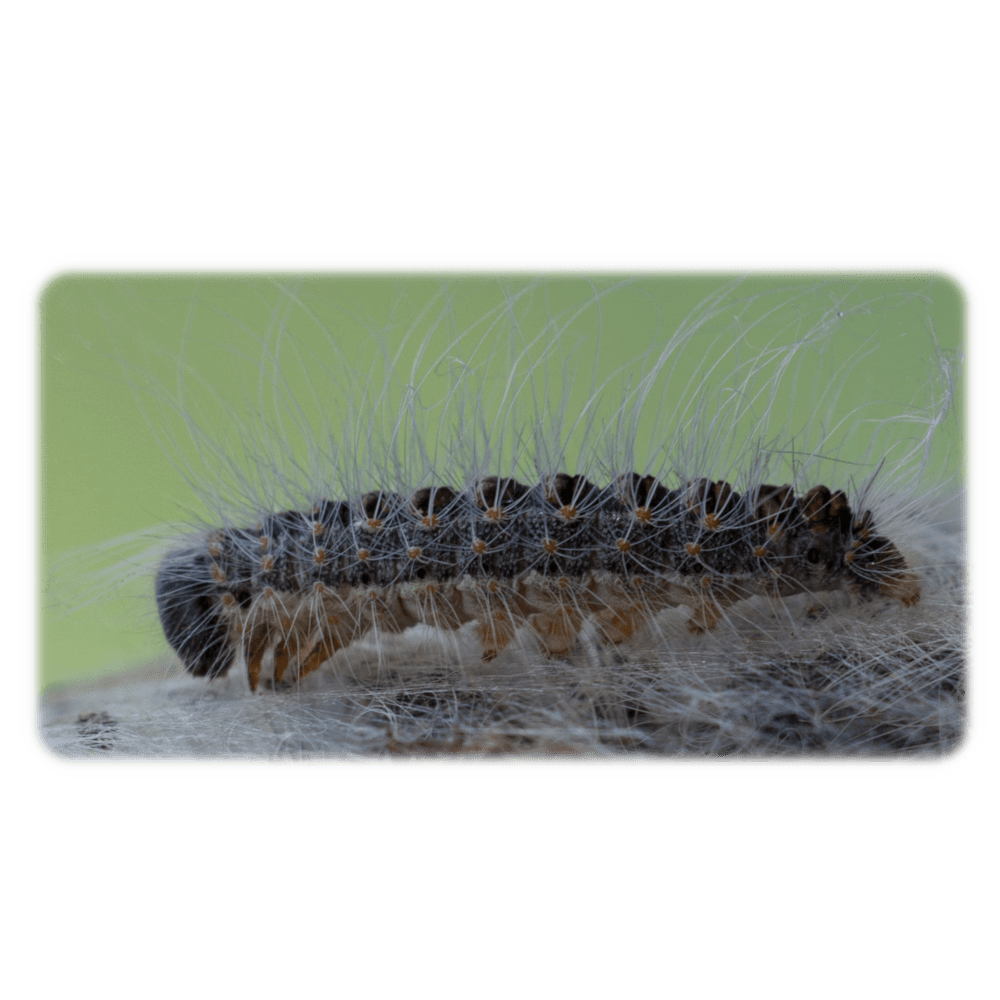The Thaumetopoea processionea (Oak processionary) eDNA detection kit is able to detect the insect species Thaumetopoea processionea based on DNA from hairs in soil, water and other samples worldwide and contains enough materials for 200 reactions. The kit is based on the fast, sensitive, and proven primers/probe qPCR technique. The kit contains primers and a probe for detecting a highly specific sequence present on the mitochondrial DNA of the species Thaumetopoea processionea.
Species information
The oak processionary (Thaumetopoea processionea) is a moth whose caterpillars can be found in oak forests, where they feed on oak leaves, causing significant damage. They travel in nose-to-tail processions (hence their name), often arrow-headed, with a leader followed by rows of several caterpillars abreast. They are a human irritant because of their venomous setae (hairs), which can cause skin irritation and asthma.
The moths are widely distributed in central and southern Europe, and are occasionally found as far north as Sweden. In the southern countries of Europe the populations are controlled by natural predators, but these predators are not present in northern Europe. Their range is expanding northward, possibly or partly as a result of global warming.
In English: Oak processionary
In German: Eichen-Prozessionsspinner
In French: Processionnaire du chêne
In Dutch: Eikenprocessierups
Primer design
The primers and probe are specially designed to be used with eDNA samples and have the following properties:
- Highest possible sensitivity (1 DNA copy per reaction). Environmental water samples contain normally very low amounts of target DNA.
- Strong fluorescence signal with low background noise. Isolated environmental samples contain residues of naturally occurring auto fluoresce substances that will interfere with the measurements. A strong fluorescence signal from the analyses is required for these kind of samples.
- 100% specificity. Isolated DNA from environmental samples contains billions of DNA fragments from bacteria, protozoa, plants, animals, etc.
The kit is developed and optimized to be used on eDNA isolates purified using the eDNA isolation kit (#SYL002) from Sylphium molecular ecology.
Kit contents
The kit contains materials for 200 reactions.
- Positive control (Thaumetopoea processionea DNA)
- 2x Sylphium qPCR mix (100 reactions) without primers and probes
- 2x Primer/probe mix (100 reactions) for detection of Thaumetopoea processionea (FAM dye)
- 1x Taq DNA polymerase (200 reactions)
- Protocol and primer/probe validation report
Manual

















